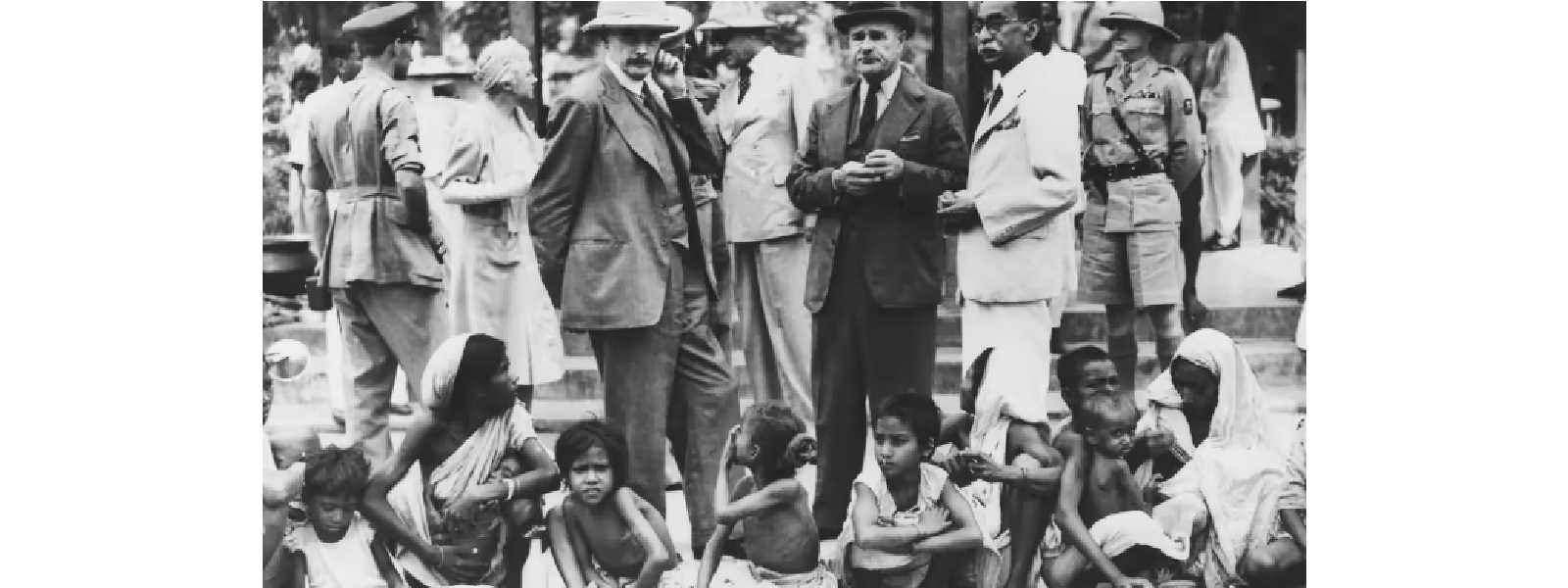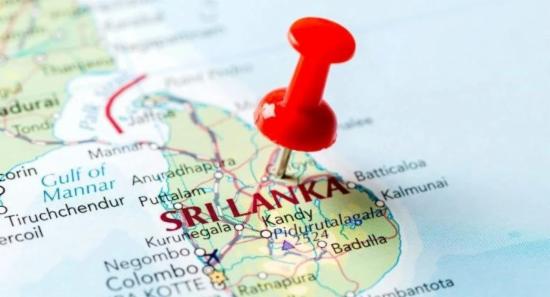.webp)

“We were denied democracy”. - On British colonial debt.
COLOMBO (News 1st):
In the 20th century, it really did seem like the sun would never set on the British empire, but it succumbed to the age of decolonization. Now the question remains, does modern day Britain have a moral debt of acknowledging their colonial wrongdoings?
In 2015, Lok Sabha member, diplomat and writer Dr. Shashi Tharoor stunned the Oxford Union when he delivered a speech on the motion passed by the House which was ‘this house believes Britain owes reparations to her former colonies’. The speech was far from neutral and held firm to the indignant argument that Britain exploited a burgeoning economy for her own benefit. India is as appropriate a case study as one could find on the destruction that roots from colonialism. While commonwealth nations like Sri Lanka have also been subject to the ills of colonialism, in the post-colonial era successive Sri Lankan governments have robbed themselves of their own riches through cronyism, greed and political abuse of power.
When the English East India company arrived on the shores of India, the Indian economy was contributing around 23% to the global economy, by the time they withdrew in 1947 its contribution has dropped to below 4%. Over the course of 200 years, Britain reduced the Indian economy to nothing. Why? Simply put, India was used for the development of the British empire. India was the largest purchaser of British goods (particularly cotton based textiles from Lancashire produced using Indian cotton). Many have argued that one of the virtues of colonialism is the construction of railway and road infrastructure. But were these not built for the benefit of British economic activity in India? Were the railways not used to transport resources from plantations and factories to the ports? There is a truth held that the colonies in Africa and South Asian subcontinent missed out on the industrial revolution and the west bore the burden of spreading civilization, modernism and development through industrialization. But did the colonized really, wholly benefiting from the industrialization that was being forced down their throats by their western captors? Who were the real beneficiaries?
Under the premiership of Sir Winston Churchill, as the independence movement in Britain’s overseas empire grew more antagonistic, repressive military policies were developed by the empire to maintain control of the colonies. Whilst it must be acknowledged that in the early 1940s, Mahatma Gandhi and Mohammad Jinnah called for campaigns of violence themselves, (in the Quit India campaign and Direct Action day respectively killing thousands of their own), the Bengal famine of 1940 killed 4 million people. Whitehall responded with erroneous neglect when Churchill refused to divert British merchant ships carrying grain to Bengal fearing an interruption to the British war effort. When informed of the extent of devastation caused by the famine, Churchill callously wrote along the margins of a document, “Why hasn’t Gandhi died yet?”. Ireland’s potato blight between 1845-1852 illustrates a similar picture of the failure of British policy on land (that killed 1 million people). The famine encouraged 6 million Irish to migrate to America.
The two great world wars are constant reminders of the extent of Indian involvement in the British war effort; in the Great war of 1914-1918 Indians consisted of 1/6th of British forces; 54,000 of these Sepoys lost their lives. In the Second World War (1939-1945) 1/2 million Indians served in British forces including the Royal Air Force. An argument relentlessly posited by pro-reparationists who argue for British compensation for colonial wrongdoings.
Afro-Caribbean psychiatrist and historian Franz Fanon articulates a colonial economy in this way ,
“
Colonialism hardly ever exploits the whole of a country. It contents itself with bringing to light the natural resources, which it extracts, and exports to meet the needs of the mother country's industries, thereby allowing certain sectors of the colony to become relatively rich. But the rest of the colony follows its path of under-development and poverty, or at all events sinks into it more deeply.”
Other Articles
Featured News





.png )
-753360_550x300.jpg)

-753118_550x300.jpg)
-753105_550x300.jpg)



















.gif)